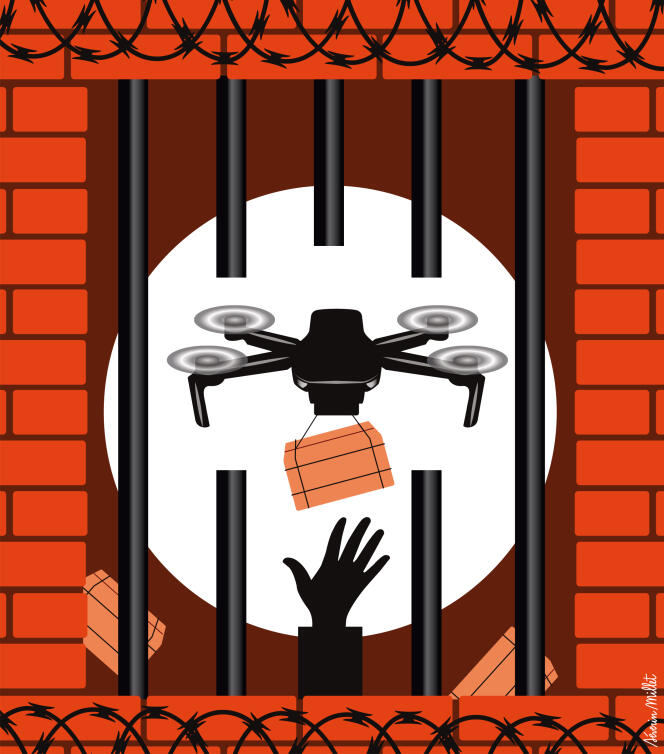


An almost undetectable hum and a fleeting shadow across the night sky – the operation required the utmost discretion and followed a well-trodden path. A drone flew stealthily over the prison walls, then began a controlled descent towards its recipient. All the inmate had to do was reach out and retrieve the load carried by the aircraft. Mission accomplished. The drone returned to its operator and disappeared into the shadows, ready for its next mission. At the end of September, a drone delivery network was dismantled in Loire-Atlantique. Four people, including three brothers, were arrested. They were accused of delivering numerous cell phones and over 1.5 kilograms of drugs to four prisons in the west of the country.
While the seizure was significant, the method was not unusual. In recent months, drone deliveries were made to the prisons in Gradignan (southwestern France), Nîmes, Beauvais, Strasbourg, Roanne (central France), Ploemeur (north-western France), as well as Perpignan and Lyon. The items delivered were varied: cell phones, SIM cards, cocaine, edged weapons, but above all, cannabis resin. Hence the nickname given by security guards to this new practice: "Uber shit," a term also used for home drug deliveries in general.
The phenomenon is widespread. Few of France's 187 prisons have not been the target of illicit drone deliveries to inmates. According to figures provided by the prison administration, 600 overflights or attempted overflights have been detected since the beginning of the year, compared with just 28 in 2022. But on some sites, prison officers claim that overflights are now a daily occurrence. "It's a plague, a catastrophe. We intercept barely 10% of drone deliveries. The chances of intercepting them are virtually nil," deplored Ronan Roudaut, head of the NGO UFAP-UNSA Justice at the Bordeaux-Gradignan prison.
"The threat posed by drones, which are essentially nocturnal, is fleeting and highly diversified. It affects all institutions, but especially prisons, as they house individuals involved in various types of trafficking and are sometimes located close to hotbeds of criminal activity," observed Laurent Ridel, director of the prison administration. As for the goods transported, which generally do not exceed 500 grams per flight, "they are mainly telephones and their accessories, and narcotics such as cannabis, and medicines," added Ridel.
This is what happened in Gradignan, on the outskirts of Bordeaux, in the middle of summer. Roudaut remembers the scorching night of August 18: "If we hadn't opened the watchtower window because of the heat, we wouldn't have seen anything." This time, thanks to a stroke of luck, the device and its cargo were intercepted after being recovered at 4.35 am by a prisoner who only had to reach out of his cell window. In the bag: 500 grams of cannabis resin, 28 grams of weed, two phone chargers and a SIM card. A week later, the 21-year-old prisoner, who denied that the goods were intended for him, was sentenced to six months' imprisonment with continued detention.
You have 70% of this article left to read. The rest is for subscribers only.
